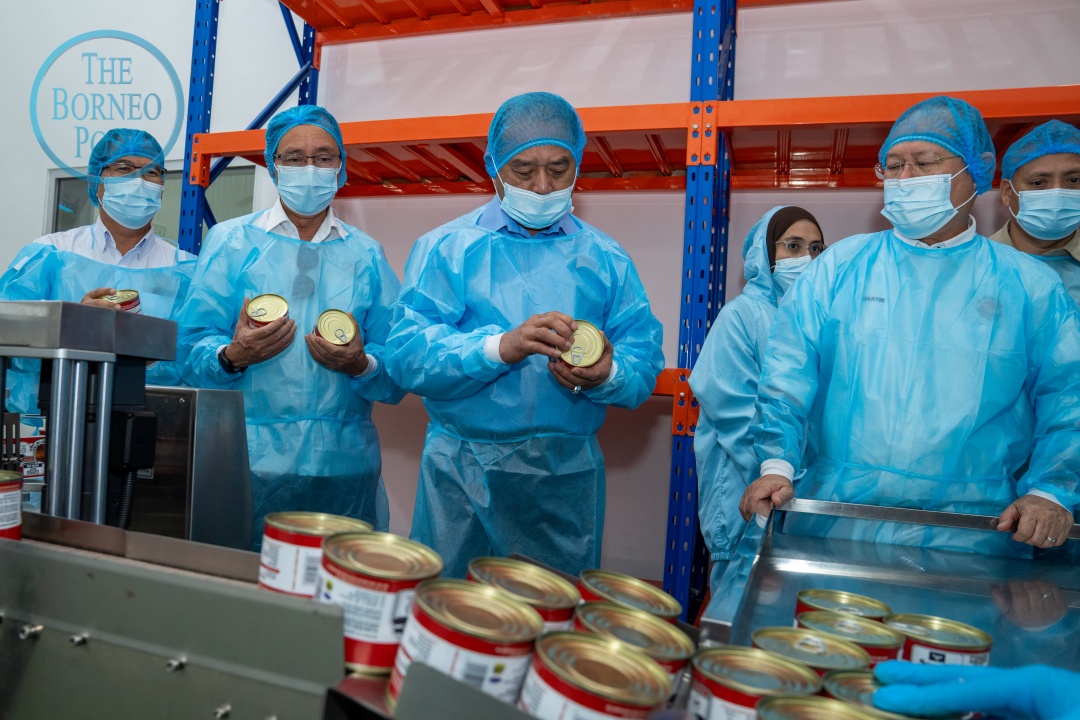Dr Rundi: Livestock sector transformation key to building S’wak’s sustainable agro-economy, boost SSL
Posted on 05 Jun 2025
Source of News: The Borneo Post

KUCHING (June 5): Sarawak is setting its sights on transforming its livestock sector into a fully integrated halal agro-industry with ambitions that extend well beyond achieving self-sufficiency, said Dato Sri Dr Stephen Rundi Utom.
The Minister of Food Industry, Commodity and Regional Development said the state’s ongoing development of a complete livestock supply chain from upstream production to downstream processing is key to building a sustainable agro-economy.
“This is part of our ability to create a complete supply chain. We’ve tried many schemes and our target is to produce 60,000 head of cattle by 2030, which will bring our self-sufficiency level (SSL) for beef and related meat products up to 25 per cent.
“Sarawak’s current SSL stands at around 16 per cent, up from 13 per cent previously,” he told reporters during a working visit to the PPES Ternak Sdn Bhd Halal Abattoir Complex in Siburan, here today.
He said the Halal Abattoir Complex has already started producing cornmeal and other downstream products, while efforts to diversify Sarawak’s livestock offerings are taking shape in regions such as Lawas, where mozzarella cheese production is expected to begin by the end of the year.
Plans are also in motion to expand production of halal canned corned beef using Sarawak black pepper, targeting both domestic and export markets, he added.
Dr Rundi further stressed the importance for agencies under his ministry to continue working together to ensure the agricultural sector becomes sustainable, by building market access into every production plan.
“The reason we’re facing problems in agriculture is because we’ve never had a complete supply chain. People are willing to plant or raise livestock, but the market is often uncertain and that must change,” he said.
The visit to the PPES Ternak Sdn Bhd Halal Abattoir Complex, a wholly owned subsidiary of Sarawak Economic Development Corporation (SEDC), reflects the government’s continued commitment to strengthening the state’s long-term food security.
It also aimed to provide Dr Rundi with a firsthand understanding of PPES Ternak’s integrated supply chain operations – from feedlot farming to meat processing – and assess its strategic contributions to Sarawak’s overall food ecosystem.
A statement issued by Dr Rundi’s ministry in conjunction with the visit said the programme featured a detailed tour of PPES Ternak’s core facilities, including the Siburan Halal Abattoir Complex, corned beef processing factory, and the feedlot centre.
“All facilities are certified under Halal, MESTI, and HACCP standards, reflecting the company’s dedication to producing high-quality, hygienic, and traceable meat products for local and regional markets.
“This engagement also underscored the importance of increasing Sarawak’s cattle SSL to reduce reliance on imported meat,” said the ministry, adding that it recognises the vital role of PPES Ternak in supporting the state’s Post Covid-19 Development Strategy 2030 and helping position Sarawak as a regional food hub.
“The visit reaffirms the state government’s commitment to working closely with industry stakeholders to ensure that every household in Sarawak has access to safe, affordable, and sustainably sourced protein which is a cornerstone of building a resilient and food-secure future for the state,” it added.
Accompanying Dr Rundi during the visit were his deputy minister Datuk Martin Ben and SEDC chairman Tan Sri Datuk Amar Abdul Aziz Husain.

